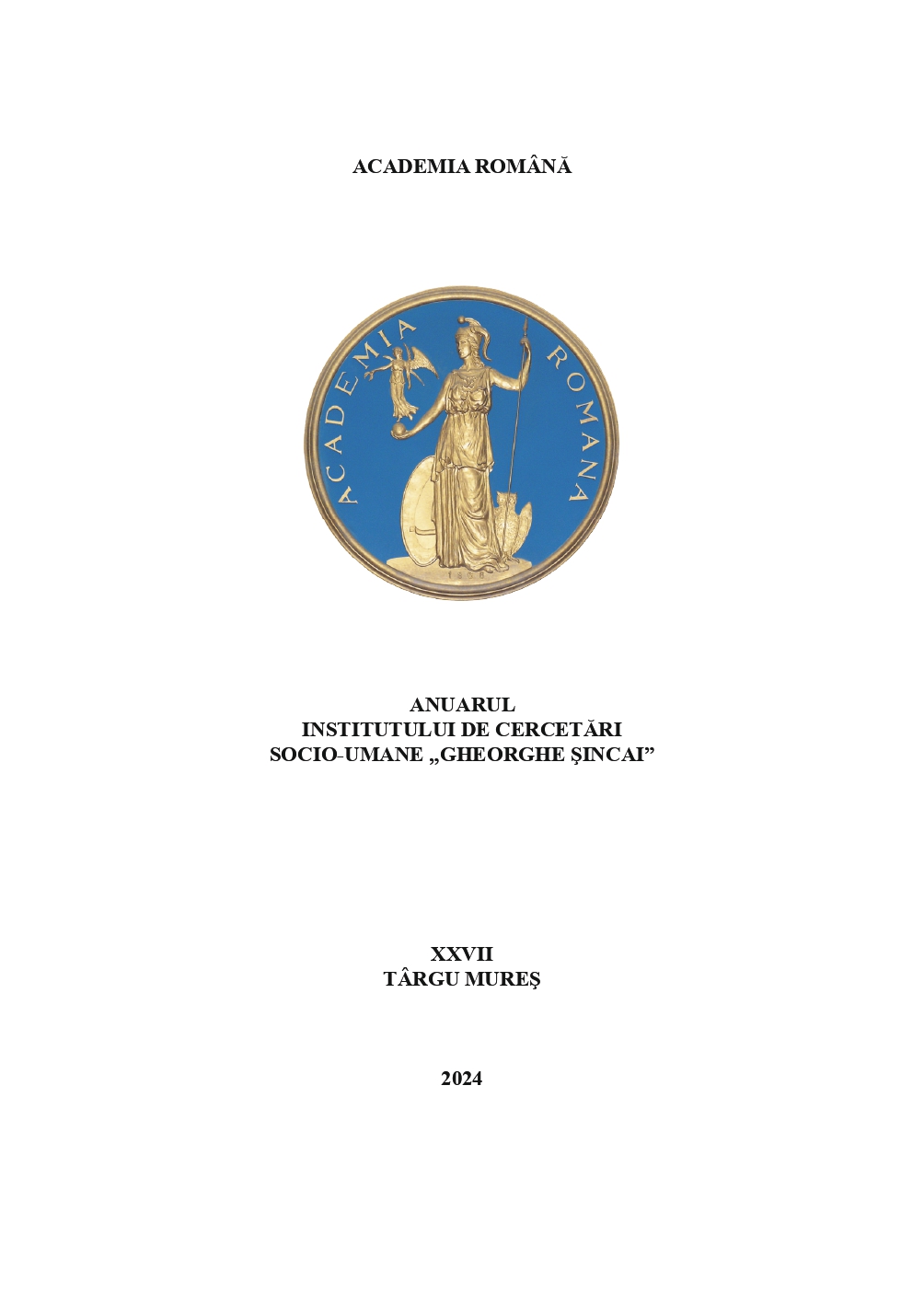VOM LIBERALISMUS ZUR NATIONALSOZIALISTISCHEN GLEICHSCHALTUNG. DIE STELLUNG
VON FRIEDRICH KEPP AN DER SPITZE DER SKV
From Liberalism to National Socialist Subjugation. The Position of Friedrich Kepp at the Head of the Transylvanian Carpathian Association (SKV) as a Representation of the Political Path of the Transylvanian Saxon Elite in the Interwar Period
Author(s): Ioana FloreaSubject(s): Cultural history, Ethnohistory, History of ideas, Local History / Microhistory, Interwar Period (1920 - 1939)
Published by: Institutul de Cercetări Socio-Umane Gheorghe Şincai al Academiei Române
Keywords: Friedrich Kepp; Transylvanian Carpathian Association/Siebenbürgischer Karpatenverein (SKV); tourism; dual loyalty; national socialism;
Summary/Abstract: Friedrich Kepp shared the view of the majority of the Transylvanian-Saxon elite of the interwar period regarding the position of this ethnic group within Greater Romania. As an academic and president of one the biggest and most important Transylvanian-Saxon associations, the Transylvanian Carpathian Association/Siebenbürgischer Karpatenverein (SKV), he shaped the club politics and influenced the Transylvanian-Saxon public opinion of the interwar period. His liberal views on opening the SKV to representatives of other ethnic groups and denominations (as members or as cooperation partners) and his positive attitude towards the integration of the association into the Romanian touristic (National Tourism Office, Federation of Touristic Associations in Romania) and scientific (Commission of Natural Monuments, Romanian Society of Medical Hydrology and Climatology) central structures reflect the main political direction and the general attitude of the Transylvanian Saxons towards the Romanian state and the Romanian majority society. First, we notice, a moderate trust in the Romanian political institutions in the early years of the interwar period and a willingness to integrate, while maintaining the dual loyalty (an intellectual and cultural affiliation with the German cultural and linguistic area parallel to a political loyalty to Romania). This stand, however, eroded over time due to unpopular political measures of the Romanian government and to its failure to fulfill the obligations regarding the ethnic population groups (such as the agrarian reform, which particularly affected the Evangelical Church in Romania and impaired the financial support of the Transylvanian-Saxon education system, the lack of collective rights for the ethnic Germans, etc.) Finally, the initial feeling of trust, turned into dissatisfaction and disapproval in the 1930s, paving the way for the adoption of the national socialist ideology of the Third Reich. Based on SKV’s annual reports and periodicals, the following study presents Friedrich Kepp’s club politics during the time of his presidency, 1919–1941.
Journal: Anuarul Institutului de Cercetări Socio-Umane »Gheorghe Şincai« al Academiei Române
- Issue Year: 27/2024
- Issue No: 27
- Page Range: 173-197
- Page Count: 24
- Language: German

